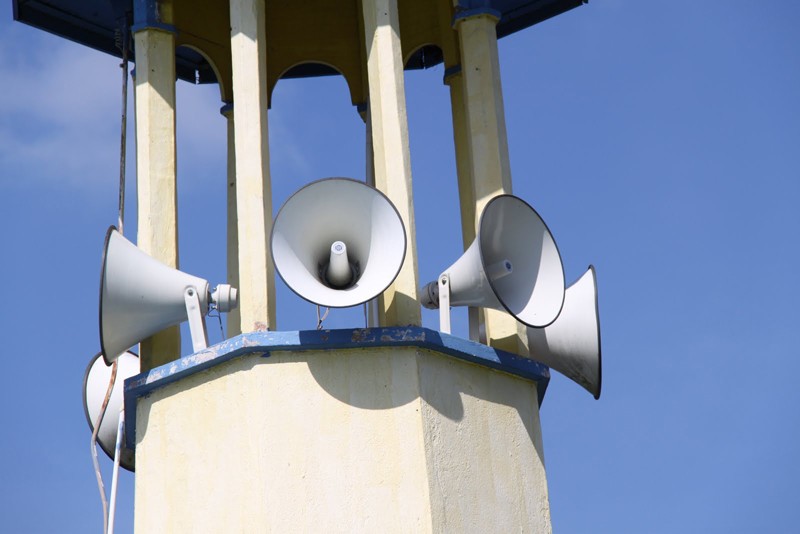

It was the first Friday of the month. Maulana Shamsur Rehman Muavia, Punjab president of Ahl-e-Sunnah-Wal-Jamaat (ASWJ) was going to attend a meeting in Harbanspura, Lahore, in the afternoon when unknown assailants gunned him down. His death was followed by a series of protests, with the protestors openly displaying arms and chanting slogans against the sect believed to have been involved in the killing.
Sectarianism and target killings on religious grounds in Pakistan have accelerated after the ashura conflict in Rawalpindi. A judicial inquiry into the incident -- that killed at least 11 people in exchange of indiscriminate fires later resulted in the burning of a mosque, seminary, many Imambargahs and a whole market -- is still going on.
Majlis-e-Wahadatul-Muslimeen (MWM), a national level Shia organisation, claims at least 44 target-killings of its people in the past six weeks, in different parts of the country, mainly Karachi. "Police have failed to arrest even a single killer in these incidents," says MWM spokesperson Mazahar Shigri.
The ASWJ, on the other hand, also claims that fifteen to twenty of its followers have also been target-killed in Karachi in the last one month. The killers of Maulana Rehman are also unidentified and at large.
The Rawalpindi clash has once again raised the long-standing demand of making a strict Code of Conduct that ensures respecting each other’s religious beliefs and not spreading hate speech. Earlier, a serious attempt was made in the 1990s when the united platform of different Islamic religious factions -- Milli Yakjehti Council (MYC -- Council for the national solidarity) -- adopted a consensus code which was meant to promote tolerance, harmony and peace in the country at a time when there was a strong wave of sectarian violence.
The code, however, was never implemented by the government, recalls Senator Prof Sajid Mir, chief of Markazi Jamiat Ahle-Hadith Pakistan, who was the founding member of the united council and played a major role in the formulation of the code. "Religious parties agreed upon the code, which was also meant to control the misuse of loudspeaker but they have no authority to implement it," he says. "It was up to the government to direct the local administration to adopt and implement it."
He claims the code is relevant even today.
Post Rawalpindi, Maulana Tahir Mahmood Ashrafi, chairman Pakistan Ulema Council and also one of the founding members of a moribund MYC, has proposed a similar code to the Council of Islamic Ideology (CII) and the Punjab government to adopt it to deal with the current wave of sectarian violence.
Following these voices in the first week of December, the Punjab government also convened a meeting of representatives of different sects and adopted a nine-point code, mainly comprising the MYC recommendations. The code recommends to completely ban the use of loudspeaker except for giving the call for prayers (Azaan) and Friday sermons in Arabic language. Ashrafi says only a strict implementation of this code can ensure peace in the country.
MWM also wants this code implemented.
The support of such sectarian groups is widespread in different strata of the society. In a recent full-page advertisement in a local Urdu newspaper, a prisoner from jail condoled the killing of the provincial chief of ASWJ. "I condole the death of a true companion of former SSP leadership," quoting Imtiaz Kohkhar alias Taji Khokhar, the inmate from cell number 4 of Adyala Jail, Rawalpindi, as per the ad. He also announced Rs1 million for the victim’s family and separately one hundred thousand rupees per month as financial assistance to his family on regular basis. "After my death, my children will continue to give this assistance to his family," the ad further reads.
In his 40s, Maulana Shamsur Rehman Muavia lived a modest living in a three-marla two-storey house in a lower-middle class locality Basti Saidan Shah in Lahore. He studied only in religious seminaries, including the famous Deoband seminary Jamia Ashrafia in Lahore. He was a leader of Sipah-e-Sahaba Students wing. Said to have been motivated by the speeches of former SSP leader Ziaur Rehman Farooqi, this was the time when he started using the title of ‘Muavia’ with his name.
His brother Saeedur Rehman says Muavia was quite peaceful and had a positive image among all sects. He was able to rescue even many Shias after they were threatened by different militant groups because of his religious influence and linkages. He was often asked to manage a truce in various disputes and infighting among sects."
Qasim Farooqi, the spokesperson of ASWJ, says there is no choice except to implement the former MYC’s code of conduct in letter and spirit and legislate to ensure respect of companions of Holy Prophet (PBUH). "It should be a compoundable offence under the law," he says.
"Such sectarian groups have deep roots in the society through their social, political and religious networks where they implement their agenda of religious animosity," says a senior police official who has also been working with the Counterterrorism Department (CTD), requesting not to be named.
In a recent report in July 2013, among others, much before Ashura clash, Qari Amanullah, a cleric at Jamia Taleem-ul-Quran, Raja Bazaar, where the recent clash took place, was spotted violating the government ban on the use of loudspeakers during the Friday prayers, but the mosque was provided police protection during the prayers. In another report, the CTD expressed concern over the breach of ban on the use of loud speakers in mosques pointing out that there were more than 170 violations from the mosques from July to November.
During General Pervez Musharraf’s regime, there were efforts to regulate the use of loudspeaker and Sound Amplifier Ordinance 1964. Directions were passed to control hate speech and confiscate hate-literature but it could not be implemented fully.
"I believe 80 per cent of the issues will be resolved [once the code is implemented. These extremist factions are increasing their influence through different ways including land-grabbing," says Ashrafi.